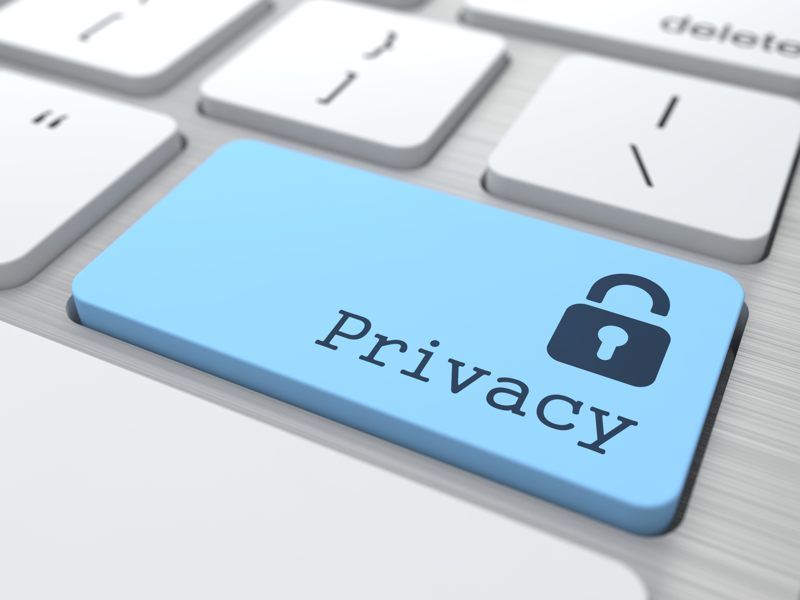
NSHN’s Commitment to Privacy and Confidentiality
North Shore Health Network (NSHN) is committed to maintaining the privacy and confidentiality of personal information (PI) and personal health information (PHI) in our organization. Protecting the privacy of PI and PHI is an important component in the provision of quality services to our patients.
The Personal Health Information Protection Act (“PHIPA”, 2004) provides patients and/or their substitute decision makers (SDMs) with certain rights.
THE RIGHT TO KNOW
It is essential that the reasons behind the collection of PHI, its intended use, and who will have access to it are understood by the patient.
NSHN will also inform anyone impacted by lost, stolen, misused, or improperly accessed PHI.
THE RIGHT TO REFUSE
Except in certain circumstances, patients or their SDMs can refuse or withdraw consent to the collection, use, or sharing of PHI.
THE RIGHT TO ACCESS
With some exceptions (and subject to a fee), patients or their SDMs are entitled to a copy of records containing the patient’s PHI.
THE RIGHT TO CORRECT
When incorrect PHI may impact care, a correction can be requested.
THE RIGHT TO VOICE CONCERNS
If you have a concern about how NSHN has responded to a request for access or correction to PHI or a privacy breach, you can contact the Information Privacy Commissioner of Ontario:
2 Bloor Street E., Suite 1400
Toronto, ON
M4W 1A8
Telephone:
(416) 326-3333 or 1 (800) 387-0073
Fax:
(416) 325-9195
The Personal Health Information Protection Act (“PHIPA”, 2004) also provides NSHN with the authority to collect, use, and share your personal health information (PHI) in certain circumstances.
COLLECTION
NSHN collects PHI that is necessary in order to provide patients with care and for other reasons specified in PHIPA or other laws as being a permitted use of PHI.
If PHI is needed for any other reason, a signed or verbal consent will be obtained before collection.
USE
In addition to providing healthcare, PHI may be used for:
risk management and quality improvement activities
to obtain payment for the care provided
assisting the hospital foundations in conducting fundraising to improve our facilities, services, and programs
evaluating and planning programs and services
for teaching purposes
for other purposes allowed or required by law
SHARING
In addition to sharing information with anyone who needs it to provide healthcare, PHI is visible to other hospitals in Northeastern Ontario through our shared electronic health record (EHR). These organizations must also follow PHIPA to access or use PHI in the EHR.
A basic level of PHI may also be provided to people requesting a status update on a patient.
Additionally, PHIPA allows the sharing of PHI for the improvement of the healthcare system and the health of the general public, as long as certain privacy requirements are satisfied.
This could include for the purposes of:
research
Public Health disclosure requirements
planning, evaluating, and managing the health system
helping to improve the provision of healthcare
QUESTIONS
If you have questions about privacy, PHI, or PHIPA contact NSHN’s Privacy Officer:
Debra Brothers
(705) 356-2265 ext. 2620
PrivacyOffice@nshn.care
Self-Identification for First Nation, Métis & Inuit
“Do you identify as First Nation, Métis or Inuit?”
-
Individuals with Indigenous ancestry may identify as First Nations, Métis or Inuit.
Self-identification is based on how you define your identify. No assumptions are made.
This question is voluntary and confidential.
-
Inform the Registration Staff when asked this question during registration.
If you are not asked but wish to self-identify, notify a healthcare provider or registration clerk.
Your response can be updated at any time.
-
Option to connect to Indigenous System Navigation Support.
Helps NSHN to provide care that respects your culture, traditional practices, and preferences.
Supports better access to specific programs, services, and funding that may be available to you.
Better understanding the needs of patients visiting our hospital - use this information to build on programs and services that are important to our local communities.
-
Establish a more welcoming environment.
Better access to Indigenous-specific programs, services, and supports.
Better understanding of your cultural preferences and needs.
Help to understand the interest and need to additional programs and services within the hospital and surrounding community.
-
Help with:
navigating the complex healthcare system
support your transition from hospital to home
discharge planning with you and your caregivers
making referrals for services and supports
supporting access to traditional or cultural practices
-
NSHN staff add this information to your Electronic Health Record (EHR).
When staff are aware that a patient is Indigenous, they can provide more culturally safe care.
Staff can help patients in accessing spiritual or traditional healing practices, and Indigenous-focused services.
-
Your information is protected under the Personal Health Information Protection Act (“PHIPA”, 2004). This means that:
information can only be accessed by providers that are caring for you
your privacy and confidentiality are a priority
NSHN follows all guidelines and laws to keep your information safe
your information is used to care for you in the best way possible


